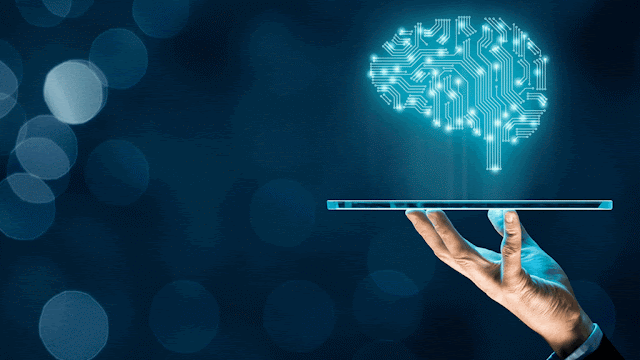What is AI (Artificial intelligence) and how has it changed our lives
An Overview
Have you ever considered the meaning of the phrase "artificial intelligence"? In nature, it is the modeling of human cognitive processes by machines, particularly computer systems, making them fundamentally "smart" and able to learn from past errors, adjust to new statistics, and perform jobs in that way. This technology isn't a novel idea; it already plays a significant role in many aspects of our life. These machines are capable of performing tasks that generally need human intelligence, Artificial intelligence (AI) is made up of several components, including machine learning, natural language processing, and deep learning. These components work together to enable machines to replicate cognitive processes like problem-solving and decision-making.
Why is AI Important?
Ever thought about this aspect? You should! Today, AI has the potential to transform various industries, from healthcare and finance to retail and transportation. It can automate customer interactions, perform data analyses, and even drive cars! Additionally, AI systems may gain knowledge from the data they analyze, which leads to even better performance. They open up new levels of efficiency for organizations and society by enabling us to analyze and understand data at an unprecedented volume and speed. We will talk about popular AI (Artificial intelligence) tools in the next post
 |
| Why is AI (Artificial intelligence) important? |
Advantages of AI (Artificial intelligence)
AI possesses several merits contributing to its widespread adoption and utilization. The qualities mentioned below and other qualities will be presented in the next AI (Artificial intelligence) tools along with the practical ones. Here are a few:
.png) |
| Advantages of AI(Artificial intelligence) |
By simplifying processes and lowering the need for human involvement in regular activities, automation powered by Openai is transforming industries. With AI, the speed of executing tasks escalates remarkably. Machines can work 24/7 without fatigue, thus ensuring continuous productivity. This not only improves efficiency but also frees up human attention for higher-value creative and strategic pursuits.
.png) |
| Increased Efficiency and Throughput |
In humans after all, who doesn't make mistakes? But AI doesn't. It helps in accuracy and precision with data interpretation and processing. In an age characterized by an abundance of data, AI's data analysis capabilities are invaluable. AI algorithms can rapidly process vast datasets, extracting meaningful insights and patterns that drive informed decision-making and business strategy.
 |
| Reduced Human Error |
AI can predict potential pitfalls because of its ability to process large amounts of data at an astounding speed. AI plays a pivotal role in delivering personalized experiences to users. Recommendation systems on e-commerce platforms, personalized content feeds, and virtual assistants like Siri and Alexa are all powered by AI, offering tailored interactions that resonate with individual preferences.
%20(1).png) |
| Risk Testing Experiences AI (Artificial intelligence) |
.gif) |
| Enhanced User Experiences |
5: Scientific Innovation and Research
6: Healthcare Transformation
Artificial intelligence (AI) integration has had a significant impact on the healthcare industry. From analyzing medical images with remarkable precision to aiding in disease diagnosis, AI is revolutionizing patient care. It is improving diagnosis accuracy, enabling prompt actions, and ultimately saving lives because of its capacity to analyze enormous volumes of data and spot tiny trends. Openai can transform medication development, treatment approaches, and medical research as it develops, ushering in a new age of healthcare innovation and better patient outcomes..png) |
| Healthcare Transformation (Artificial intelligence) |
7: Autonomous Systems and Mobility
.png) |
| Autonomous Systems and Mobility AI |
8: Language Processing and Communication
AI's prowess in language processing is reshaping communication in remarkable ways. Through Natural Language Processing (NLP), machines are now capable of understanding, interpreting, and even generating human language. Chatbots provide instant customer support, language translation tools bridge global communication gaps, and voice assistants like Siri and Alexa respond to our commands seamlessly. AI's ability to comprehend nuances and context in language opens new avenues for accessibility and convenience, enriching the way we interact with technology and each other.
.png) |
| Language Processing and Communication AI |
😲Disadvantages of AI (Artificial intelligence)😲
There is a principle that something that has advantages will also have disadvantages. Disadvantages its awe, AI doesn't lack drawbacks:
 |
| Disadvantages of Artificial Intelligence |
- High Costs: The AI machines require heavy monetary funding for their creation and maintenance.
- Unemployment: If machines replace human intelligence, it could lead to a spike in the unemployment rate.
- Lack of Emotions: AI cannot replicate human emotions. It may be able to simulate emotions but lacks empathy and intuition. Despite these potential pitfalls, the question remains.
AI is like a new superpower for people to harness. Imagine a world with more perfect weather predictions, fewer car accidents, and personalized medicine! Shortly Artificial Intelligence is here to basically make our lives easier and more efficient. It does indeed have advantages and cons, just like other technologies. The overall influence of AI on society and businesses has been generally beneficial, though, and this suggests that the advantages may exceed the disadvantages. It could actually transform the world for the better if the appropriate rules and laws were in place. The Reality of the Future.
 |
| Disadvantages of Artificial Intelligence list |
📢Are you prepared to accept artificial intelligence, then?
A strong "Yes" should be the answer you give. In the future, such amazing science and technology will only grow and become more important. So, why not hop on this train and see where AI could take you? It promises to be an exciting journey!
With learning, understanding, and implementing AI, you can certainly enhance your work process and your worldview trend!


%20(1).gif)

2 Comments
Bro Good Post! Most Informational blog for AI.
ReplyDeleteI wait for Your Next Post (AI Tools).
I Read Your Previous Post Tesla Roadster Change Your Life Style
Good post Sir!
ReplyDelete